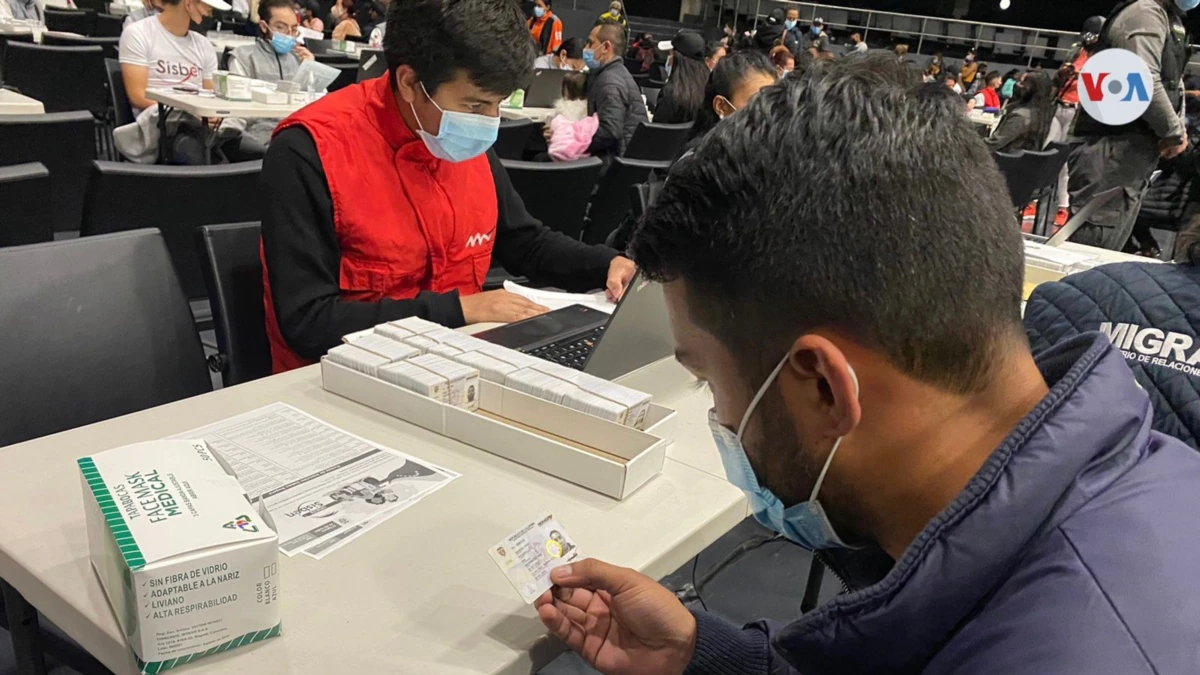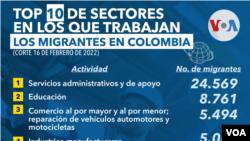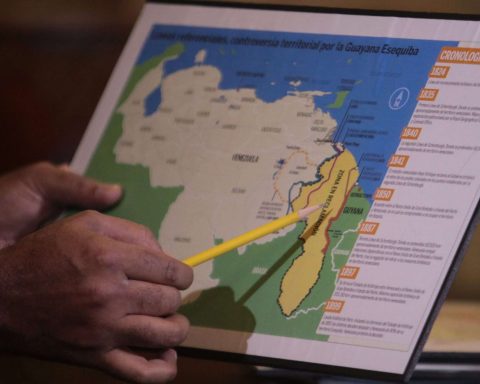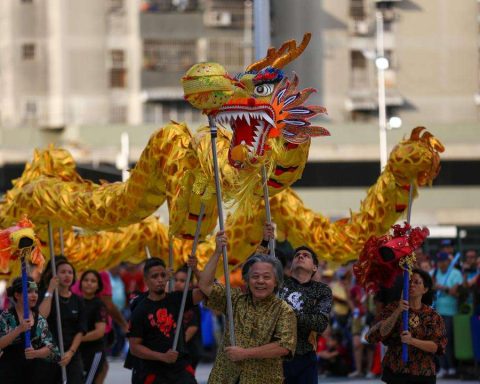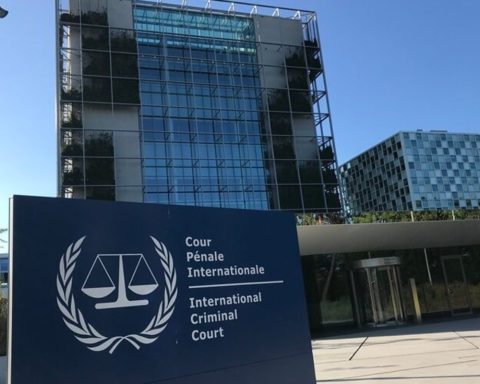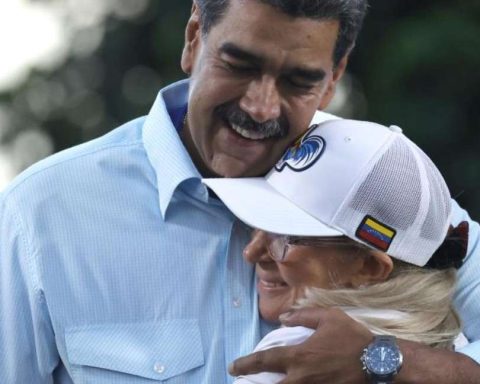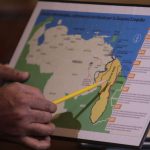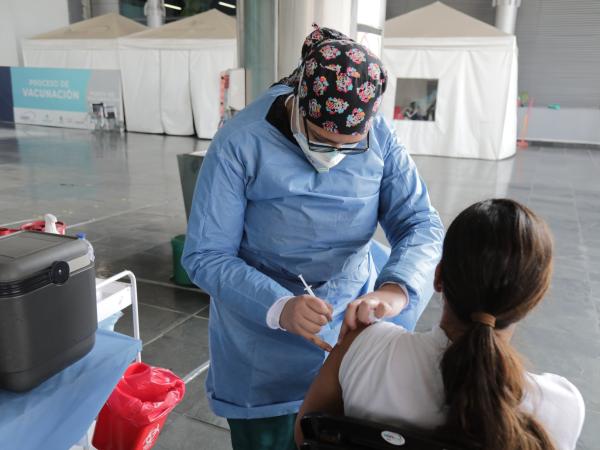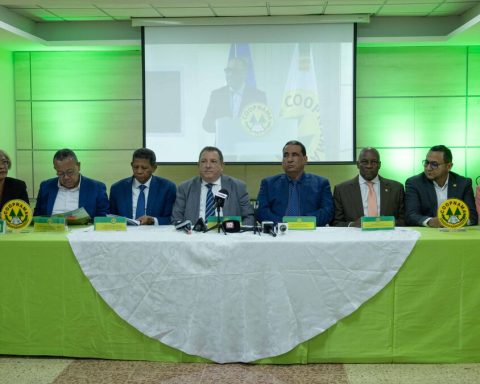Francisco Bolívar, a masonry officer who decided to leave Venezuela when the trade he had practiced for more than 20 years became obsolete when the construction of houses and other types of civil works in his country stopped due to the economic crisis that paralyzed this economy line.
Once in Colombia, he was one of about 1,000 migrants who have been certified by the Colombian government to endorse the knowledge of his trade.
Just like him, another 936 of his compatriots were recognized in their professions and trades throughout their lives, through the ‘Hacer Vale’ program, promoted by the Ministry of Labor in conjunction with the National Apprenticeship Service (Sena).
This was explained by the Labor Minister, Ángel Custodio Cabrera, to the voice of america and stressed that by giving this qualification certificate to the migrants who participate in the program, the door is opened for them to enter the qualified Colombian labor market in a formal manner.
“The information of these people certified and trained by the Sena is entered into the database of the Public Employment Service, in order to facilitate them to obtain a formal job,” explained the minister.
He also said that before the end of the current government they are going to triple this program, and that for this they are going to seek resources from the Inter-American Development Bank (IDB) and other multilateral organizations to help migrants obtain their Protection Permit. Temporary (PPT), a document that allows them to stay in Colombia for 10 years.
Bolívar, the Venezuelan migrant interviewed by the VOAassured that the Sena training served to reinforce his knowledge, which allowed him to get a job as a construction official and not simply as a worker in an important company in Bogotá.
It is complicated for migrants who are looking for work, having to be trained and certified, but at the end of the day that effort is worth it, because it is rewarded with a job with all the benefits, Bolívar explained by telephone to the VOA.
“This certification allows us to access better wages and better living conditions and prevent us from being exploited at work, as has happened to many compatriots who have been victims of some employers who take advantage of the need,” he said.
The expert on Venezuela issues from the Universidad del Rosario, Txomin Las Heras, described the qualification certification exercise as a good government initiative, however, he pointed out that it is an insufficient and small measure, because it barely approaches 1,000 people. benefited.
“And although it is a positive measure, it should have much more scope, and should allow them to advance in the validation of their university and technical degrees, to accelerate their entry into the labor market, given that the process in Colombia is cumbersome and slow, given the lack of of the apostille”, he explained.
According to the statistics of the Single Registry of Foreign Workers in Colombia (Rutec) of the Ministry of Labor, there are currently 7,905 companies from 10 main sectors of the Colombian economy that have linked 35,969 Venezuelan migrants with contracts, and they are concentrated in Bogotá-capital of the country and Cundinamarca-, and in the departments of Antioquia, Cundinamarca, Valle del Cauca, Atlántico, Santander and Risaralda.
Administrative and support services activities lead the top 10 of the trades in which 22,252 Venezuelan migrants have a job, with a formal contract and all labor guarantees, like any Colombian worker.
It is followed by the manufacturing industry, commerce, information and communication, accommodation and food, scientific and technical services, education, construction, agriculture (livestock-hunting, servicing and fishing) and other activities.
Accompaniment to the migrant
Minister Cabrera stressed that these people are being followed up with different mechanisms, in order to facilitate legal entry into the Colombian labor market, because “what we want to combat is the labor exploitation of migrants in Colombia and improve their quality of life”.
“Our unemployment rates, due to the effects of the pandemic, are in double digits, which represents a structural problem, but together between Colombians and Venezuelans we have to look for job opportunities, and that’s where we are,” he said.
He stressed that what the Ministry of Labor is looking for is to comply with labor regulations and avoid any type of exploitation. “It is important to point out that we have received complaints from migrants in this regard.”
He argued that he has implemented surveillance and control throughout the country and that taking advantage of the Free Trade Agreement (FTA) with Canada, 355 jobs for labor inspectors were created, to hear and attend to this type of complaint from Venezuelan migrants.
Cabrera stressed that they are creating routes that will allow the labor market in our country to expand. “We have close to a million people who need employment, plus Venezuelan migrants, it is a strong deficit, but together we will continue to improve economic growth, with more opportunities and with more foreign investment. Obviously, with the political process underway, it stagnates a bit, but we are going to leave the most appropriate routes for the new government to continue with the labor inclusion programs”.
Connect with the Voice of America! Subscribe to our channel Youtube and turn on notifications, or follow us on social media: Facebook, Twitter and Instagram.
